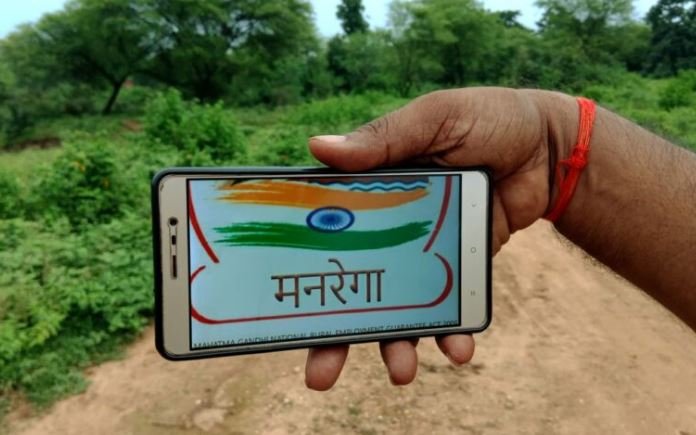For years, MGNREGA — India’s flagship rural employment scheme — faced allegations of corruption and mismanagement. The fraud typically worked through fake attendance records. Local worksite supervisors, called mates, would falsely report workers’ attendance, sometimes using old photos or clicking the same worker’s photo multiple times to claim money for dozens of ghost workers.
In many cases, two or three actual laborers would be photographed while dozens of others’ names were marked as present. This let corrupt officials siphon off crores of rupees from government funds meant for rural families.
Between November 2024 and June 2025 alone, authorities uncovered nearly 13 crore fake workdays under MGNREGA in Rajasthan. This was equivalent to an illegal claim of over ₹2,600 crore in wages.
How the Mobile App Changed Everything
In January 2024, the Rajasthan government introduced the National Mobile Monitoring System (NMMS) app to bring transparency to MGNREGA. Under this system, every worksite mate was required to upload live photos of workers at the beginning and end of the day, with GPS location enabled.
The app made it impossible to upload old photos or mark absent workers as present. If a photo’s location didn’t match the registered worksite or if the same photo was uploaded multiple times, the app would automatically flag the attendance as suspicious.
Within months of the NMMS app’s rollout, officials noticed a sharp decline in reported workdays and attendance. What had seemed like a fully functioning employment scheme was, in fact, riddled with fake entries.
A Massive Clean-Up Operation
The app’s data revealed staggering discrepancies. From January to June 2025, about 15.31% of total reported workdays were fake. The government swiftly cancelled over 7 crore workdays flagged by the app.
Authorities issued notices to 1,700 mates and put over 5,000 officials and clerical staff under scrutiny for their involvement. Many were blacklisted, while several employment guarantee assistants were suspended.
This clean-up not only saved over ₹2,600 crore in government funds but also ensured that real workers, who rely on daily wages for survival, received their rightful payments without delays.
What Comes Next
Buoyed by the app’s success, Rajasthan’s Rural Development Department is now exploring advanced features such as facial recognition technology and enhanced GPS tracking. The aim is to further tighten monitoring mechanisms and make it impossible for fake attendance to go unnoticed.
Other states have taken note of Rajasthan’s achievement and are reportedly considering implementing similar digital attendance systems in their MGNREGA programs.
For millions of rural laborers, this tech intervention marks a major step towards restoring faith in public welfare schemes and ensuring that government money reaches those who need it most.


